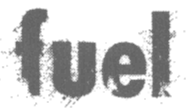

Central PA Magazine Interview
Author Unknown
December 1998
"You never know in a musical career. It's so fickle."
A place to call home has been elusive for Carl Bell and the members of the alternative rock band Fuel. Having grown up in the small town of Kenton, Tennessee, the band moved to Harrisburg in 1995 to pursue the world of recording contracts and MTV videos. It took years of nonstop touring throughout Central Pennsylvania and surrounding major markets, such as Baltimore and Washington, D.C., to make their dream a reality. Backstage after a sold-out show at Millersville University in 1996, Fuel signed a contract with Sony's 550 Music; they released their full-length debut CD, Sunburn, in March. Amid a hectic touring schedule that included cities all over the United States, the band's songwriter, Carl Bell, met me at a small table in his newest home, a well-equipped tour bus, before a summer concert at the York Fair.
Donovan Witmer discusses songwriting and musical success with guitarist Carl Bell of the alternative rock band Fuel.
DW: What is a typical setting for writing your songs?
CB: I can be doing anything. Driving is a good time to write. Your conscious mind is focused on operating the machinery and, after an hour or two, your subconscious takes over. But I can be anywhere, man. I always have songs inside my head.
DW: Tell me about your songwriting process.
CB: A lot of times, I'll have the guitar and I'll just speak words and not even consciously think about them --- just spit it out. And a lot of times something comes out that you weren't even aware you were thinking about, or weren't even in touch with, but it comes out of your subconscious.
DW: How would you express your emotions if you coulden't play guitar?
CB: Wow, I don't know. That would be a huge hole in my world, I tell ya. It's like, "It's not the kill, but the thrill of the chase." I really like the persuit of the song.
DW: So, the process is as important to you as the product.
CB: Oh, absolutely. But of course, the product is great. Once the process is through, and you have a great product, that's where you really get some gratification out of it.
DW: How did the band get its name?
CB: We wanted something short, concise, that they woulden't misspell on the marquee --- they still do.
DW: Why did you pick Harrisburg when you moved?
CB: We knew that there were a lot of fans, that people would go and see and support live bands. We knew radio here would support local music and would spin it on regular rotation.
DW: What is it like to hear your song "Shimmer" on the radio all over the United States?
CB: One of the coolest things happened to me right here in Harrisburg. I was at a stoplight, and I looked in my rearview mirror and saw this guy, who was probably 22 or so, sittin' at a light behind me, and it was on the radio. I looked in the mirror and saw this guy singing every work of the song. Just doing his own thing and singing the song.
DW: Are you making a lot of money now?
CB: I'm worse off than I've ever been financially. Everything now is recoupable. The video you shoot, the tour bus you're in, the crew you have to pay. After all that's said and done, you have to pay the business accountants, management....So when it finally trickles down to you there's no a lot. A lot of people have that misconception that you're rolling in money, and it's so far from the truth at this level. Obviously, when you're Celine Dion and you sell 60 million reconds, yeah, you're making good money. Right now I'm living off of less than $200 a week.
DW: What represents success for the band?
CB: We got roadies (laughs). It's such a relative thing --- success. Creating a good record, having people engaged by the music you're creating and reaching people like that.
DW: Do you enjoy touring and performing live?
CB: I love it; don't take me off the road. I love playing out, something new every day. At the same time, all of us know you have to get while the gettin's good, because you never know in a musical career. It's so fickle, so for us, there's a sense of urgency, of making sure we do everything we can right at this point, and hopefully to have some longevity.
DW: The refrain to your hit single "Shimmer" warns that "all that shimmers in this world is sure to fade." Do you ever fear that could be the band's future?
CB: I guess your average career for a band is three, four, five years, so I'd hope we have a better than average career. But it's so easy to be temporary that I think you try to do all you can to make it last as long as it can.